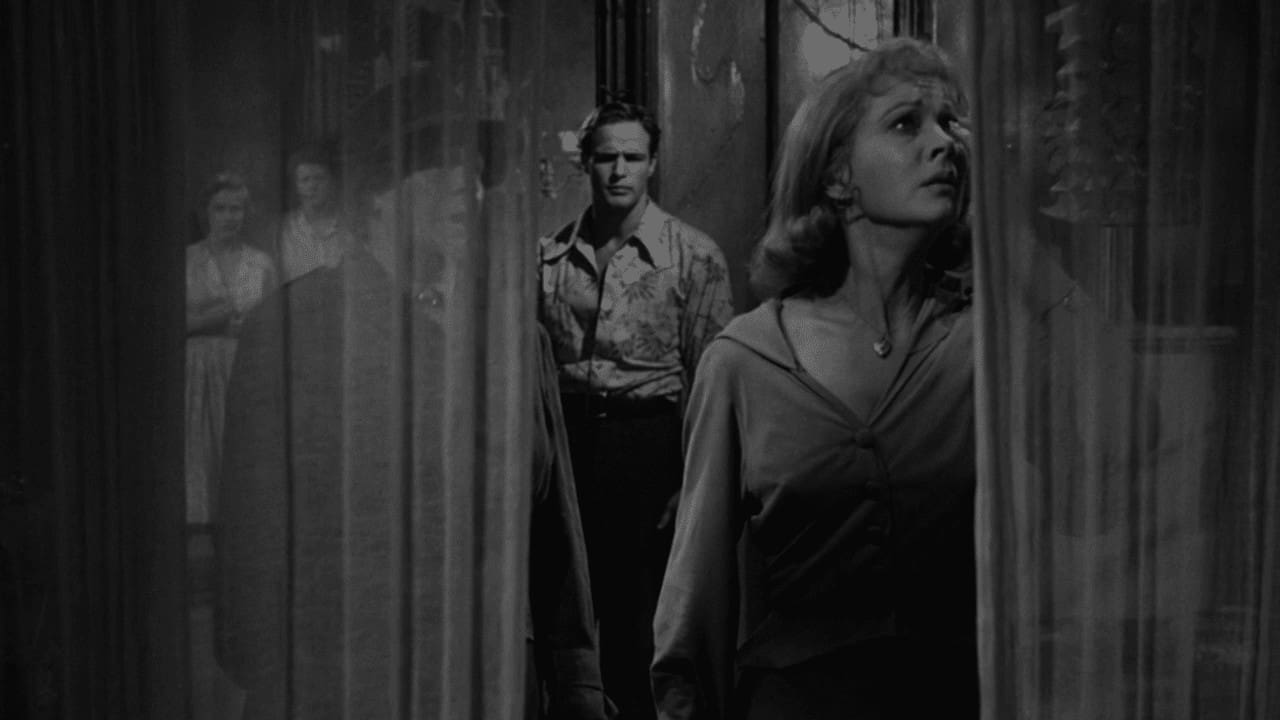STANLEY: ...what I am is a one-hundred-per-cent American, born and raised in the greatest country on earth and proud as hell of it...
Stanley is a character who, while uneducated and coarse, seems to have a purpose behind everything he says, and also to have a certain amount of logical consistency, so this statement isn't merely just tossed off as an example of his simplicity, it means something. I think he feels himself to be a free and unconstrained man, with a part, large in its own way, to play in the life in which he finds himself. I suppose he credits something of the idea and particular way of life of America as he knows them, and for which he is more suited in many ways to make a figure in than he would be elsewhere, for this.
BLANCHE: The opposite (of death) is desire.
Obviously this is the big idea of the play. Where it has to succeed, and I think it largely does, is in making the reader/watcher feel this in his visceral responses to what is written and said.
I do think this is a very consciously "American" story, and that Blanche and Stanley represent two extremes of the American character and the directions in which the development of those types have been and are going.
Water is highly symbolic in this play. The stage directions frequently specify that the sound of it is heard running somewhere off stage.
STELLA: I couldn't believe her story and go on living with Stanley.
EUNICE (a neighbor): Don't ever believe it. Life has got to go on. No matter what happens, you've got to keep on going.
This is a rather strange exchange, though I guess the implication is that if she believes the story she is in danger of shutting down, becoming one of the living dead. I actually have always thought that in the written play there was some ambiguity as to whether Stanley really raped Blanche, or if it was somewhat more complicated, or perhaps even her imagination (she becomes inert and is carried to the bed while a trumpet and drum from outside play loudly in the scene where this incident happens). Blanche comes out and says "I want an explanation of what's happened here"--a sign of evident confusion. She talks of being "buried at sea sewn up in a clean white sack", cleanliness, or the image or illusion of it being another continual theme. She also screams when Stanley rips off the paper lantern and holds it out to her "as if it was herself".
Did Shep Hartleigh really once want her? Or is that not important? I guess he is probably not supposed to even exist. This is quite embarrassing, publicly struggling to figure out what is going on in these second and third tier artworks, which a well-ordered mind would be able to seize and disseminate in whole at a glance. Penance, penance.
So what I think is going on here is this, right?: Blanche effectively "died" when she lost her sense of purity that she had in girlhood. Her desire was in one sense to return to that unspoiled state, or at least cling to the illusion of it, which took the form however of rather opposite behaviors, many indeed involving actual schoolboys, which game--both of them--Stanley ruthlessly exposed and refused to humor, which proved to be more than she could endure.
The movie is written about exhaustively elsewhere, and I don't have anything to add, other than that it would have been exciting if more American films in the 50s had followed in this kind of direction, because it's very different from most of what seems to have lasted from that era--the Honeymooners actually is kind of similar to it as far as setting, but somehow the effect isn't quite the same.



No comments:
Post a Comment